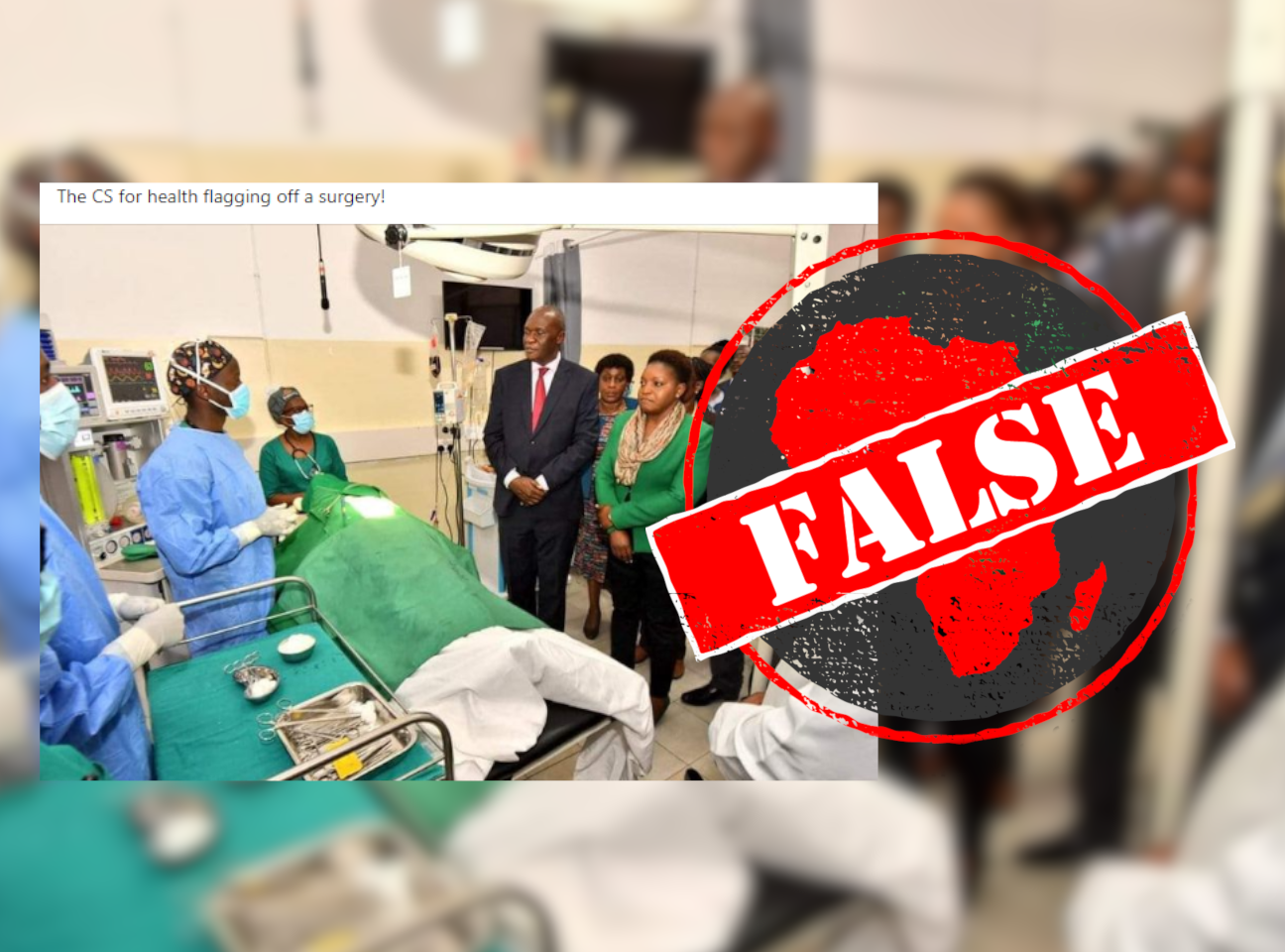IN SHORT: A photo of Kenya’s top health officials supposedly in a surgical theatre drew criticism for the failure to observe patient safety rules. But the photo was actually snapped in a medical college’s surgery simulation lab.
A photo is circulating on Facebook with the claim that it shows Kenya’s cabinet secretary (CS) for health “flagging off” a surgical procedure.
The photo appears to show a patient surrounded by surgeons and other medics in scrubs, with public officials including CS Susan Nakhumicha and the acting director general of health Patrick Amoth gathered around.
The caption reads: “The CS for health flagging off a surgery!”
Comments on the posts zero in on a lack of patient dignity and safety.
But is this the real story behind the pic?

Medical training college simulation
A Google reverse image search of the photo reveals it was taken in the Kenya Medical Training College (KMTC) simulation lab and didn’t involve an actual patient in theatre.
On 17 November, Nakhumicha tweeted: “This image from the KMTC SIMULATION LAB has elicited some debate; allow me to say 3 things:
“1. The criticism my team and I have received is justified. Medical theatres are sterile environments and although this is a simulation lab, we should have been dressed in proper attire.
“2. The simulation lab uses dummies, not patients.
“3. I congratulate @Kmtc_official for making their simulation lab appear 'life-like'. Visitors to this lab should be properly dressed to complete the picture.”
She also shared a link to an article on the simulation lab.
The medical college and the ministry of health launched the KSh14 million simulation laboratory to train health workers on 28 July 2021.
The laboratory, the first of its kind in a public medical training facility, aims to improve Kenya’s ability to produce the critical care medical specialists need to fight emerging diseases such as Covid, and to improve healthcare delivery.
Republish our content for free
For publishers: what to do if your post is rated false
A fact-checker has rated your Facebook or Instagram post as “false”, “altered”, “partly false” or “missing context”. This could have serious consequences. What do you do?
Click on our guide for the steps you should follow.
Publishers guideAfrica Check teams up with Facebook
Africa Check is a partner in Meta's third-party fact-checking programme to help stop the spread of false information on social media.
The content we rate as “false” will be downgraded on Facebook and Instagram. This means fewer people will see it.
You can also help identify false information on Facebook. This guide explains how.



Add new comment